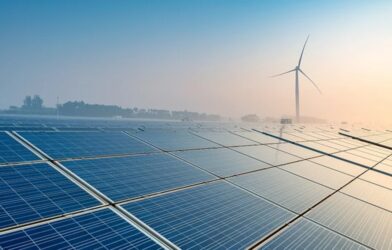Recently, the National Solar Energy Federation of India and the Energy and Resources Institute struck an agreement to hasten the decarbonisation of India’s rapidly expanding data centre sector. As demand for digital products rises, the industry is under growing pressure to cut emissions.
Signed during the inaugural Data Centre Summit on Carbon-Free Energy, the statement of purpose will direct experimental projects, policy lobbying, and research. The deal focuses on using storage technologies in conjunction with renewable energy sources to give data centres dependable and reasonably priced electricity.
Alekhya Datta, director of electricity and renewables at TERI, stated that by 2070, India’s data centres would use around 390 terawatt-hours of electricity. He went on to say that the move is both scalable and economical due to the ongoing decline in solar-plus-storage costs. Data centres may soon rank among the nation’s biggest power users, NSEFI Chief Executive Subrahmanyam Pulipaka cautioned. According to him, demand aggregation and innovative business models would be used by the NSEFI Green Data Centre Coalition to bring stakeholders together and grow clean power.
According to Pulipaka, “NSEFI will be crucial in scaling firm power for data centres.” “Our partnership with TERI is an important step in the direction of sustainability.”
With monthly data usage per person topping 19 terabytes, India is already one of the world’s largest data consumers. Storage facilities, which use up to 50 times as much energy per square foot as commercial buildings, are in high demand due to this growth.
Data centres may increase from less than 1% of India’s current electricity requirement to 6% by 2030. According to industry estimates, greening these plants may result in an 88 per cent reduction in emissions. In order to create renewable procurement agreements, influence legislative frameworks, and advance energy-efficient cooling, the alliance will collaborate with the federal and state governments. Additionally, it intends to exchange best practices regarding technology adoption, compliance, and ESG standards.
Shripad Yesso Naik, Minister of State for Power and New and Renewable Energy, was present at the signing of the SoI. Discussions were also attended by executives from Amazon, which sponsored the event.















Comments are closed